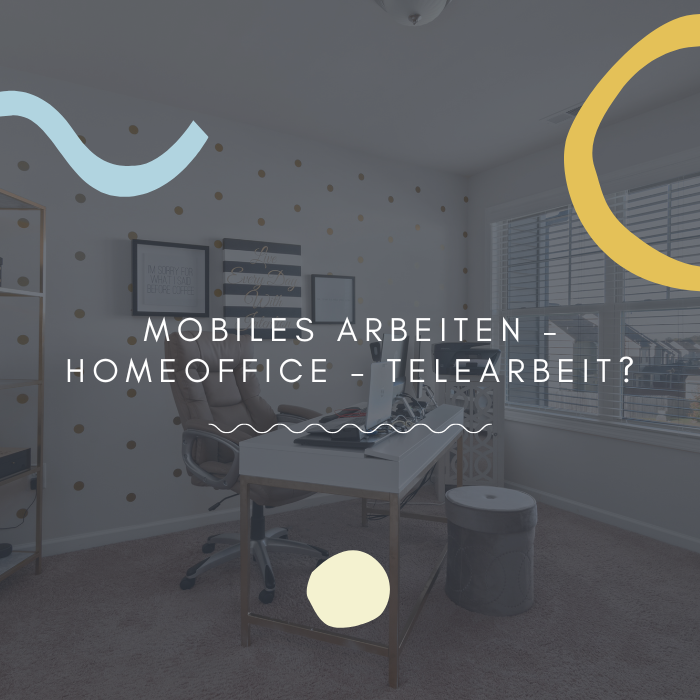We explain the differences and what the rules are
Mobile working or remote work are in vogue. More and more companies are making it possible to work from home. But is there a difference between home office and mobile work? And is that the same as teleworking? And what about legal regulations and the obligations and rights of employees and employers? We give you an overview.
In the beginning there was teleworking
Both telework and home office and mobile work describe work outside of the official production facility or business premises of a company. However, there are only regulations for telework on how this must be designed: the term telework has been in the workplace ordinance since 2016. This stipulates what “an employer has to consider when setting up and operating workplaces with regard to the safety and health protection of employees.” (Source: https://www.bfga.de) In the case of telework, the company of the teleworker must ensure that the workplace in the private sphere is set up with the necessary equipment, including furniture, work equipment and means of communication.
That means mobile working
The term mobile work, which has not yet been legally defined, must be distinguished from telework. So there are still no legally binding regulations comparable to telework, how and whether an employer has to set up the workplace of the mobile worker. Basically, mobile work is an activity that is neither tied to the office nor to a home workplace. Employees can therefore carry out their work from any location. As a rule, the companies provide the necessary technical equipment, e.g. B. laptop, smartphone and headsets. However, you are not obliged to do so. Mobile work is often referred to as remote work.
That means home office
One speaks of home office when an employee carries out his work outside the business premises in the private living quarters. There are also no legal regulations for the home office and the term has not yet been legally defined either. Even if employers usually provide the equipment necessary for the home office, they are not legally obliged to do so. Both home office and mobile working are agreed individually between the company and the employee or regulated in a company ordinance.
Try Snagit for free now
Snagit makes it easy to create, edit, and share screenshots and screen videos.
Download now
Is there a right to telework or mobile work?
Even if the presence culture is even more important in Germany than in the European and international comparison, more and more companies are offering the opportunity to work outside the company premises. In Germany, unlike in countries like the Netherlands, there is no legal entitlement to telework, mobile work or home office. It is up to employers and employees whether they choose to work remotely or from home. If they do, it is important to ensure that occupational health and safety rules are observed and that working hours and free time can be clearly separated. Managing remote teams also requires special strategies from managers.
What are the advantages of mobile work and home office?
Being able to work off-site has many benefits for both employers and employees, including:
- Companies become more resilient when their employees can work mobile or in the home office. The corona pandemic has shown that situations can arise in which our usual work and mobility processes can be severely restricted. Companies whose employees can work flexibly from home or on the move also have a clear advantage in the event of strikes in local public transport or other mobility restrictions.
- The possibility of mobile work and home office make companies more attractive and are an important criterion if you want to attract and retain new employees and specialists.
- Employees appreciate working from home and mobile work because they can save time on commutes. That means less stress and more time for family and free time. Mobile work or home office contribute to more job satisfaction and can even increase productivity.
Fully functional trial version of Snagit
New to Snagit? Try out all the screen recording and screen video features. Edit your screenshots and add lists, annotations or graphic elements.
Download Free Trial
